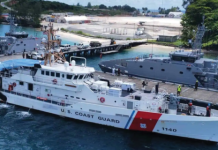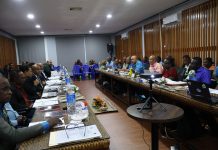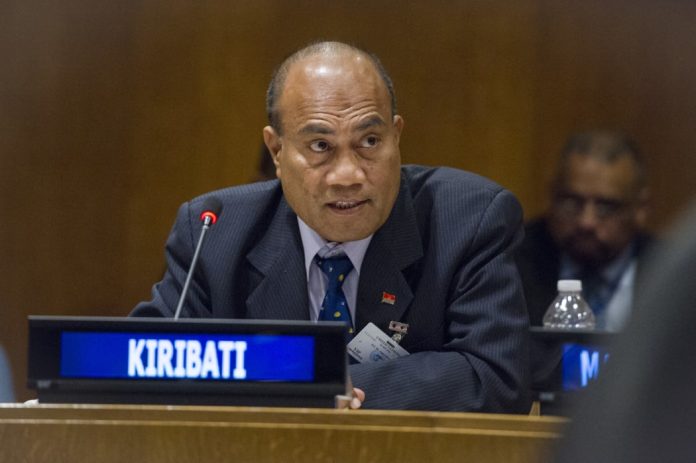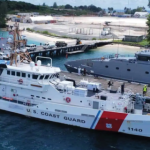The key diplomatic body in the Pacific has been dealt a devastating blow on the eve of its first in-person meeting since the pandemic, as Kiribati announced it would be withdrawing from the Pacific Islands Forum (PIF).
The Pacific has become a site of intense geostrategic competition, as a result of increased interest from China, and Kiribati’s withdrawal will weaken the forum at a time when Pacific regionalism in the face of fierce geopolitical attention has never been more important.
Taneti Maamau, the president of Kiribati, outlined his reasons for the decision in a letter to the PIF secretary general that was first reported by 1News New Zealand but which has been obtained independently by the Guardian.
“Kiribati has taken the sovereign decision to withdraw from the Pacific Islands Forum with immediate effect. This decision was not taken lightly,” he wrote, adding that the decision “was never meant to offend or be against any of our Pacific Island brothers and sisters”.
Maamau outlined four reasons for the decision, most of which centre around his belief that the forum has not adequately addressed the concerns of Micronesian countries – including Kiribati – who threatened to leave the PIF more than a year ago.
In February 2021, Micronesian leaders announced plans to leave the regional body after their candidate for secretary general of the forum was passed over in favour of a Polynesian candidate, despite a “gentleman’s agreement” that the top job should be shared between Polynesian, Melanesian and Micronesian candidates.
The Micronesian leaders had signalled their intention to leave the forum at the end of June, but last-minute talks in Suva last month between key Pacific leaders, including some from Micronesia, were thought to have resolved the impasse.
The talks led to the signing of the Suva agreement, which included formalising the “gentleman’s agreement”, committing to a Micronesian candidate being the forum’s next secretary general, the creation of a new PIF office in a Micronesian country and moving the position of Pacific Ocean commissioner to Micronesia.
At the time of the signing, David Panuelo, the president of the Federated States of Micronesia, said the agreement lifted the “big dark, dark cloud that has been hanging over the Pacific”.
However, in the letter dated 09 July, Maamau said Kiribati’s concerns had not been adequately addressed and that his country would neither be signing the Suva agreement nor attending the forum, which is due to start on Monday in Suva.
He said another reason for Kiribati’s inability to participate in this year’s forum was that the dates of the forum coincided with Kiribati’s National Day celebrations.
The decision comes at a crucial time for the Pacific region, which faces intense geostrategic interest from China, the U.S and Australia.
“It’s very clear that geostrategic competition is the backdrop to this PIF in ways it never has been before. It’s the first time since the cold war that the Pacific is really in the crosshairs of major powers,” said Dr Wesley Morgan, a senior researcher at the Climate Council, who is in Suva for the Forum.
“This could be a blow to Pacific regional unity, and unity is really important if island nations are to take on the major challenges – like geo-strategic competition and, of course, the region’s key threat – climate change.”
The importance of Pacific regionalism was seen last month when the Chinese foreign minister, Wang Yi, conducted a marathon tour of the Pacific and presented leaders with a sweeping regional economic and security deal to sign.
Pacific leaders rejected the deal, with Samoa’s prime minister, Fiamē Naomi Mata‘afa, saying it should have been raised at the Pacific Islands Forum, not at a sub-meeting.
Dr Anna Powles, a senior lecturer in security studies at Massey University in New Zealand, said the decision was likely to have stemmed from a combination of domestic politics in Kiribati and frustrations with the diplomatic processes.
“It’s unclear yet what China’s role is in this decision, but China would certainly benefit from an isolated Kiribati,” said Powles. “There has been concern about the nature of Chinese interest in Kiribati and concern about exploitation of fisheries, as well as potential strategic interest.”
Powles said Kiribati’s decision was a “devastating blow” to the Pacific Islands Forum, which served a crucial purpose in providing collective oversight of Pacific countries on issues such as fisheries and security.
“The 2050 Strategy for the Blue Pacific [the strategy document that will be presented to Pacific leaders at this year’s forum], which will be endorsed in this coming week by the leaders, talks in very robust language about the importance of regionalism, the Pacific Way; to lose Kiribati on the eve of this strategy is really devastating, actually,” said Powles.
SOURCE: THE GUARDIAN/PACNEWS














